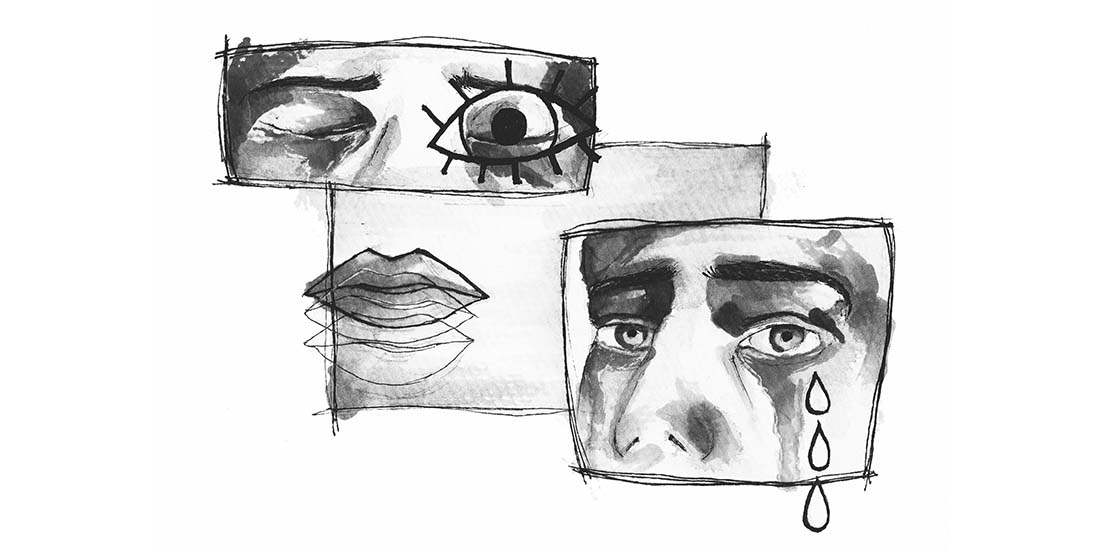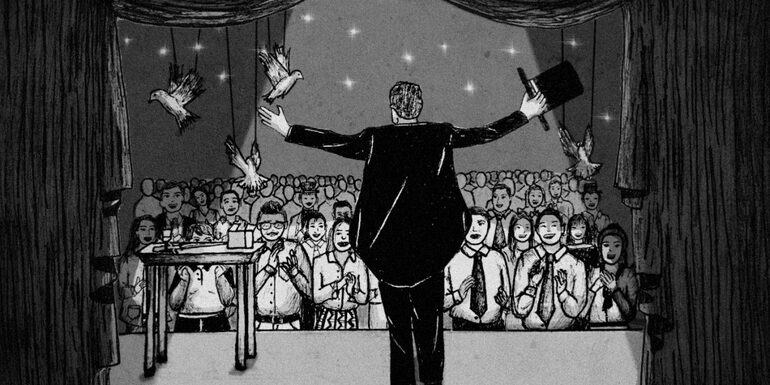Ghosting: The great disappearing act
We’ve all been exposed to jaw-dropping magic acts—the dissipating cards, vanishing doves, and even disappearing magician. Designed to delight the mind with both wonder and deception, it successfully tickles the imagination of the young and the old alike right in a snap.
But lo and behold, not all disappearances are as exhilarating as magic. Some can irk us like the all too literal vanishing tricks—ghosting. This happens when someone disappears without any explanation—like that beshie who owes you money or that tropa who happens to be your thesis buddy—poof! They’re gone with the wind, and so are your hopes and dreams (and grades). Perhaps, “I deserve an explanation. I deserve an acceptable reason” is now running through your head. But before you get triggered, sift through to debunk the millennials’ great disappearing act.
Spooky strategy
Obviously, ghosting sounds millennial and unique, but it isn’t anything new. As ghastly as the term suggests, ghosting has been common in relationships since the start of social media. Strolling through the good old days, people have already been using the term to pertain to someone who has disappeared without a trace—simply put, those who’ve gone MIA (missing-in-action) or AWOL (absent-without-official-leave). Both were originally used for military purposes—the former was used to identify a soldier who was lost in war while the latter pertains to the offense of being absent without prior notice. Traversing to the present, these terms have changed into the expression that fits the language of millennials, gaining traction in the Urban Dictionary since 2006.
Relatively, ghosting is one of the seven strategies in dissolving relationships, as stated in a breakup strategy research by University of Kansas Psychology professors Tara Collins and Omri Gillath. This means absolutely no conclusions nor clarifications of any kind—only the echoes of your own voice in the void, and perhaps that little “seen” text at the edge of the screen But the horror doesn’t just end in dating apps and sites. Be warned that it can also lurk within your strongest circle of friends.
In fact, ghosting is a common calamity in friendship, as specified by Georgetown University Linguistics professor Deborah Tannen. In the Time magazine article aptly titled Why friends ghost on even their closest pals, Tannen shares that most responses include the universal fear of not being good enough—the feeling of inadequacy. This is exactly what Student A from the CSCS felt after a best friend for 5 years ghosted on her. It appears that they had a misunderstanding due to a “shallow” reason, but her best friend cut all forms of communication with her. “I reached out to my best friend to apologize,” she said, but “the damage had been done.”
Chances are you too might have been ghosted or you’ve even ghosted on someone, so while you’ve got a shattered heart, it’s best to relax for a moment and understand the reasons why some people ghost in the first place.
Concealed causes
It’s almost too easy to cast hate on those who ghost without necessary interrogation. However, people who do the ghosting have more reasons than meet the eye. For instance, some people tend to ghost due to fear of confrontation where they resort to dissipation rather than negotiation. We all know full well that the fear of confrontation is hard to deal with, especially when not everyone has the courage to voice the truth—even if further conundrums could likely be resolved if addressed in a direct manner.
In other cases, people ghost because they sense danger. Maybe ghosting isn’t entirely savage after all. Be real—if you were in a relationship with someone who’s generally a threat to your safety or perhaps when someone’s being plain mean to you, you’d definitely want to vanish into thin air. It’s a reasonable response to fear, psychologist Susan Kolod tells the Washington Post in the article Hey, where’d you go?, especially if the safest way to exit is to say nothing at all.
On the other hand, people have the tendency to ghost when they’re dealing with emotional and mental concerns like depression or trauma. A person suffering from something like this would sometimes withdraw from everybody in their life. Irrefutably, emotional and mental concerns aren’t always a black butterfly gently fluttering in the mind—sometimes, it’s an externalizing grizzly bear.
With all these reasons considered, we shouldn’t always negatively gaze at those who ghost like they’re the bad guys. As the old saying goes, everybody has their reasons—which also applies to those who ghost.
Phantom of the mind
Beyond the shadow of doubt is an invisible specter—the act of ghosting can bewitch a victim. According to American professor Leah LeFebvre from at the University of Wyoming, ghosting casts social rejection—causing a wide spectrum of antagonistic emotions including hate, rage, envy, regret, and worry. As disturbing as it is, social rejection plagues a person from the inside out.
The process begins with psyche-killing anxiety. This hands a blank map to clarification—however, it’s the larger problem—it leaves a person utterly clueless on where to start. Unfortunately, anxiety isn’t the only catastrophic aftermath of the rejection caused by ghosting. Self-blame then possesses the victim who becomes more self-critical because of the agonizing dialogue inside their head—“You’re unlovable. It’s your fault.” Similarly, it was self-blame which haunted Student A. “I felt stupid… I realized that I should blame myself,” regarding the situation, she bravely confessed.
Ironically, becoming overly anxious over a loved one who ghosted isn’t really a surprise. What’s shocking is the study that explains the relation of rejection to psychological processes and its link to physical senses. In the research Social rejection shares somatosensory representations with physical pain, psychology professor Ethan Kross and colleagues revealed that individuals experiencing social rejection have the portions of the brain responsible for physical pain sensory activated (secondary somatosensory cortex and dorsal posterior insula, to be exact). According to the study, social rejection and physical pain possess similarities because both share a common representation in somatosensory brain systems. Normally, brain sensory pain pathways are activated through the physical stimulus but these pathways are also activated when a person feels rejected. Thus, the pain caused by rejection isn’t really different with the pain a slap can make.
Given that social rejection is a phantom dwelling in the mind, it would definitely take time before we can get rid it out of our heads. But, it’s time to shake things off and realize that the sting of ghosting may be purposeful. Actually, it makes biological sense that we feel pain when we are ghosted. Maybe it’s the brain’s signal that, after all, the person who left us without a trace—like that beshie and tropa—isn’t worth the time.
***
It’s daunting how life can be compared to a magic show. The world’s the stage and some people have their roles—some are cards, some are doves, and some are the magicians themselves. They pull the great disappearing act—proving that some people really do come and go. Alas! Now you see them—now you don’t.
Nonetheless, Shakespeare was right—“All the world’s a stage, and all the men and women merely players; they have their exits and their entrances.”



